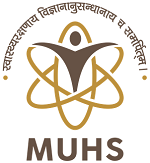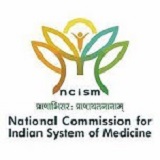Swasthavritta & Yoga
Information
INTRODUCTION
The Swasthavritta and Yoga department is a vital branch of Ayurveda that focuses on health promotion, disease prevention, and overall well-being through proper lifestyle management, hygiene, and yogic practices. The term Swasthavritta is derived from two Sanskrit words
- Swastha (healthy individual)
- Vritta (regimen or discipline)
This subject emphasizes the principles of Dinacharya (daily regimen), Ritucharya (seasonal regimen), Sadvritta (code of conduct), and Yoga, ensuring physical, mental, and spiritual well-being. Swasthavritta integrates Ayurvedic preventive healthcare with modern public health concepts, playing a crucial role in promoting holistic wellness and longevity.
AIM
- To promote preventive healthcare through Ayurveda and Yoga.
- To enhance public health awareness and lifestyle modifications.
- To provide guidance on diet, hygiene, and mental well-being for a healthy life.
- To integrate Ayurveda with Yoga for holistic wellness.
Objectives
- Promotion of Health and Prevention of Diseases:
- Educating individuals on personal hygiene, diet, and daily regimens.
- Understanding the impact of Ritucharya (seasonal regimens) on health.
- Implementing preventive strategies for lifestyle disorders like diabetes, hypertension, and obesity.
- Ayurvedic Lifestyle and Dietetics:
- Emphasizing Pathya-Apathya (wholesome and unwholesome diet).
- Studying Aahara Vidhi Vidhan (dietary principles and meal timing).
- Implementing customized dietary plans based on Prakriti (body constitution).
- Yoga and Mental Health:
- Teaching Asanas (postures), Pranayama (breathing techniques), and Dhyana (meditation) for mental and physical well-being.
- Exploring Yoga’s role in stress management, anxiety, and depression.
- Integrating Yoga with Ayurveda for therapeutic applications.
- Public Health and Community Medicine:
- Understanding epidemiology and disease prevention through Ayurvedic principles.
- Promoting Swachhata (hygiene and sanitation) as per Ayurvedic guidelines.
- Conducting health awareness programs in schools and communities.
- Environmental and Social Health:
- Studying the effects of air, water, and food pollution on health.
- Understanding the role of Ayurvedic environmental science in disease prevention.
- Promoting eco-friendly Ayurvedic lifestyle practices.
- Integration of Ayurveda with Modern Science:
- Encouraging research in Ayurveda and Yoga for global healthcare solutions.
- Exploring scientific validation of Ayurvedic principles.
- Implementing Ayurveda-based public health policies.
The Swasthavritta and Yoga department plays a crucial role in maintaining public health by emphasizing preventive care, dietetics, lifestyle modifications, and yogic practices. It helps individuals achieve a balanced and disease-free life through natural and holistic methods. By integrating traditional Ayurvedic wisdom with modern research, this field contributes significantly to global wellness and sustainable healthcare solutions.


